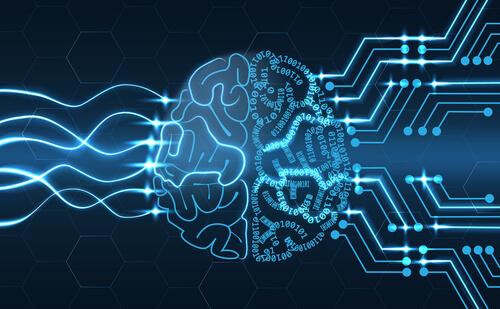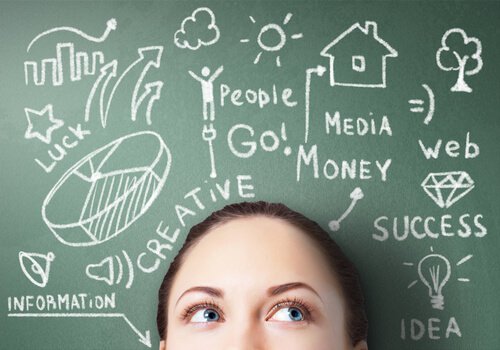Unlearning: The Key to Move On

Learning, unlearning. You obtain knowledge, learn from experience, and also learn traditions and habits. You have to experience ways to think and things to believe in. You’ve learned from your family and friends.
All of that learning molds who you are, or who you think you are. You should know the difference, because usually, you go with the latter, instead of the former. Anyhow, change and knowledge can’t be explained without unlearning. Or let’s say, you have to update yourself. Yes, like a machine. You go out with the old, and in with the new.
Do you think sometimes things didn’t go the way you wanted? You feel something’s amiss and don’t know why. Well, as Einstein said, you’re doing the same thing and expecting a different result.
You don’t make decisions depending on what you see or what you think is good or bad. You do it because of learned codes and beliefs. Then, when you feel you need to change some things, you don’t know where to start.

Unlearning your reality
There’s this structure of shoulds and musts that’s become very rigid. Self-imposed obligations block you from your way to see reality, and that’s just some smokes and mirrors that just give you more suffering than what’s really going on.
That structure can be unconsciously built by lack of critical thought, by just going with the flow. All these irrationals belief that may seem normal to you, are not at all normal.
Ellis’ irrational beliefs
Albert Ellis identified eleven of these irrational beliefs that you unknowingly have. Ellis thought that experiences, per se, don’t trigger an emotional response, it’s about how you interpret them.
- “Adults feel an extreme need to be loved and validated by any significant person in society.”
- “To feel valuable, you must be competent, sufficient, and able to do anything in any possible circumstance.”
- “Certain people are evil and vile, and should be punished because of their evildoing.”
- “It’s the worst that things don’t go like you want them to.”
- “Human disgrace happens because people don’t have the ability to control it.”
- “If something’s bad or dangerous, you have to be anxious about it and constantly think about the chances of that happening.”
- “It’s easier to avoid any difficulties than facing them.”
- “You must depend on someone stronger than you.”
- “The past determines your behavior and something that happened once and shocks you enough must keep causing you pain.”
- “There’s a perfectly fitting solution for any human issue, and if this specific solution can’t be provided, then chaos ensues.”
You can’t make decisions based on preconceived ideas about yourself. Just understanding this type of process is the first step to unlearning. This isn’t an easy process because these ideas are so internalized that they’ve become automatic.

The brain’s learning process
Positive things are as easy to learn as negative things. Repetition is a strategy that works with both. Brain plasticity molds your nervous system and changes the neural substrate. This can go both ways.
A nervous system that has gone through changes in habits and repetition of ideas, might have adapted to them. So, in a way, change happens when we unlearn something, but then the substrate is changed again when we try to learn something.
Norman Doidge refers to negative neuroplasticity with the plastic paradox. Once the brain has settled with a determinate and established change, inertia can prevent other changes to occur.
On the other hand, you can be biased if you’ve never experienced something beyond your beliefs. You can change habits, but your brain will hate it. Learning leaves a trail in the neurons involved, so it leaves a trail in the neural substrate.
If you’re faced with new ideas, you might question the ones you believed in before. This can really trouble you because maybe, according to this new knowledge, you might have made some mistakes in the past. Mistakes you wouldn’t have thought as mistakes before.
In short, new ideas can change how you think of yourself and your self-esteem. When this happens, your brain can block active zones to rule out this new knowledge. As if your brain were telling you that ignorance is bliss.
Perception, imagination, and memories
Think of something that happened to you. Can you remember all the details? Probably not. People are better at remembering the broader sense of an experience, rather than the details.
Your memories are distorted and details change every time you try to remember something. Memory is needed to remember the past, but also to imagine the future. In fact, your ability to imagine the past is linked to your past.
Many of the decisions you make are unconscious. Consciousness allows you to distinguish the past from the present and future, and this helps you keep track of time.
On the other hand, unconsciousness and intuition are based in heuristics, these little principles that ignore a lot of the data to keep the speed of thought. These heuristics are gained through social interactions, culture, and experiences in life. They’re programmed in your unconscious and make you act in automatic pilot.

Be conscious
As you might have noticed, unlearning is not so simple to do. You can’t just rule out what you’ve learned. You can, however, be more conscious of what you’ve learned and use that intelligently.
Ask yourself if you really identify with these beliefs? After you’ve answered that, the next step is trying to find yourself in them, what’s really you and what’s really just a blind belief.
Unlearning requires time, patience, and analysis. This can be a valuable inversion. You’ll learn to enjoy yourself, and also enjoy the love you’re given.
This text is provided for informational purposes only and does not replace consultation with a professional. If in doubt, consult your specialist.








